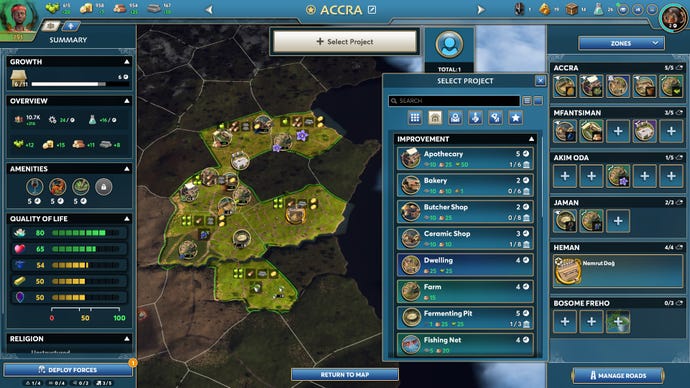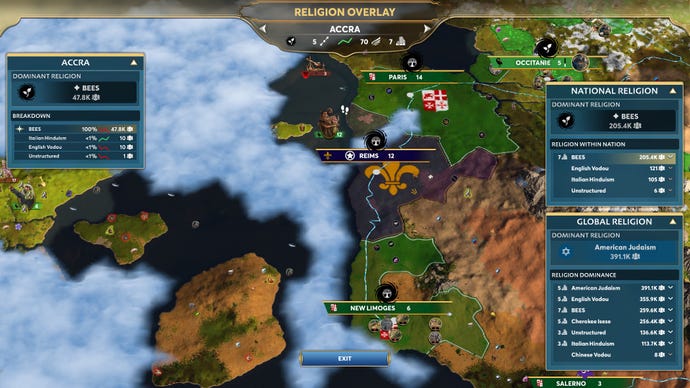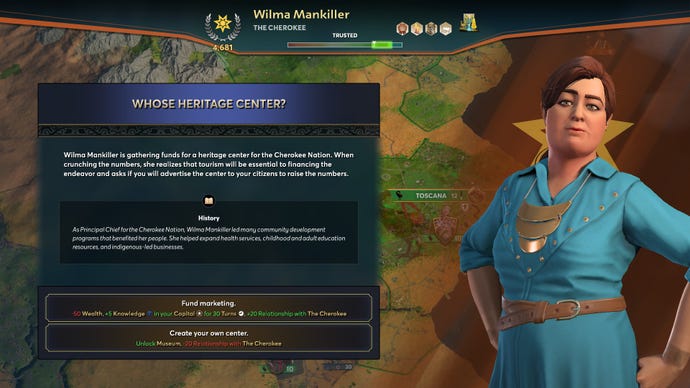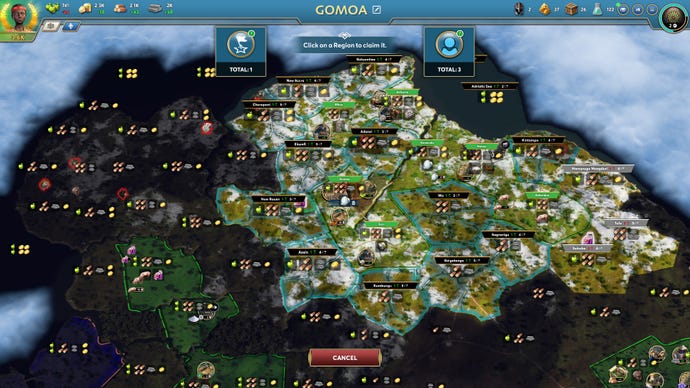I wonder about Ara Colon History Untold’s priorities. There are some compelling ideas at its heart, undermined by his own determination to put the wrong thing at the forefront. Create a wealthy and deep resource management game with an unconventional research system, but then spend so much time on the simultaneous turn system and detailed animations that you’re left with a cumbersome interface and lifeless AI, and you too may end up creating an Ara.
There’s almost a great game here, but it’s neglected and bruised from being crammed into the packaging of a feeble 4X.
The premise is, for simplicity’s sake: civilization again. You choose a historical people and take them from Unk and Thogg scratching shapes on a rock with another rock to Unkbot Is God Now, probably conquering Ugg and Thonk’s tribe along the way.
Ara reveals his best ideas right away, although it takes a long time before you actually come up with them. In an Endless Legend sense, once you’ve researched enough topics in one of the 12 eras, you can move on to the more advanced technology of the next one. However, this will discard any unexplored topics, so any buildings, units, or even resources associated with them will be lost forever. What’s more compelling is that many goods and buildings can be unlocked through multiple topics, so if you miss, say, a wheel, you can unlock them later by studying algebra. But you would never get chariots. It is even possible to lock up major resources by carelessly missing out on every opportunity to exploit them. Witness how I invented libraries and built Oxford University long before I discovered how to make paper.
Another side effect if you delay further research is that a later topic may become less desirable because you’ve already unlocked most of the rewards associated with it, which gently encourages you to diversify your revisions as initial priorities influence later ones. I would have had some compelling academic knowledge if I hadn’t ended up researching windmills.
Some silliness aside, it’s an compelling system and a necessary one, as all the buildings, resources and items it unlocks are much, much more essential than any fresh soldier type. Resources in a typical 4X are just another +1 to something, but Ara’s economic/production system is basically the entire game. You don’t buy buildings for construction points alone; wood and stone are also needed in certain quantities, and later more advanced goods. Build a workshop that will produce equipment (using specific goods to speed up the rate of production), which can be anything from bread to televisions. Each of them could be used to produce something else again, installed in a different building to make it work faster, added to apartment buildings to give the entire city a diminutive bonus, or consumed by the city to give it a larger but momentary bonus.

But first you need to mine resources, which means building a suitable mine or farm in a specific location in a region within the city. Instead of squares and hexes, as your city grows you unlock procedurally generated regions that provide varying amounts of food, gold, wood and materials. Everything except gold can be re-multiplied at the appropriate farm/mine, but each region has a different number of building slots, some of which contain useful resources. Some buildings provide bonuses to others in their region (encouraging the specialization of certain industries, such as baking or metallurgy), and others provide bonuses to city quality of life metrics – five metrics such as health, wealth, and happiness that divide or multiply Other things that every city does. Development is always a careful decision. Rarely do you simply expand where they are most ample.
If that was a lot to take in… well, yes. This is. It is an extremely convoluted system with lots of variables and an easily defining feature of the game. In terms of time ratio, the Ara is not a competitive 4X, but a production puzzler. There are no logistics and the roads are as minor as they are irrelevant, but it’s the factory builders who get to enjoy it the most. I initially did this, but it has two major problems. First, diplomacy is almost pointlessly simplistic, but its AI civilizations suck anyway. Soon I was floating around them on medium difficulty, even though I had no army and was making a mess of my cities.



Secondly, convenience ends with Ara’s solid item prompts. Overlays for maps and summary screens are almost non-existent, and the longer you play, the more you’ll need even basic macro management tools. I enjoyed the challenge of planning, but the longer it went on, the more I became immersed in its tough work. Hand-equipping each factory with each tool, and then going back to look up that toolmaker and why they stopped working, trying to remember what materials speed up which item, which city builds what where. You are senselessly notified of every product produced or consumed, but not when it is out of stock. God facilitate you if you conquer the city, because it will be poorly laid out and you will have to move ten buildings while moving all the production. And the menu layout, god.
Ara’s world is full of detailed and varied animations, all to take advantage of that 1% of time in which you won’t be looking at the map (which isn’t zoomed out enough) or the menus on either side of the pretty building (which therefore require definitely too much scrolling). Its battles feature countless fully animated fighters for completely non-interactive fights, the outcome of which is already revealed beforehand, removing any excitement.
It features dozens of playable civilizations, many of them underrepresented in games and with less obvious leaders, with unique text recalling uncommon era transitions. However, they display no personality or noticeable differences in behavior, which is so variable and murky that I soon found myself ignoring any foreign relations messages, and many of the innate bonuses are so useless that it’s a joy to play Boudicca, Osh-Tisch, or Step On Me Business Suit Sappho quickly forgets who you even are. The fact that the simultaneous rotation system was so tough to implement makes its complete irrelevance all the more surprising.
Ara is an compelling and fun twist on the Civ concept, but it becomes unwieldy long before it ends. Figuring out how to build a growing empire will be an enjoyable challenge for those looking for some kind of production chain game, but I don’t think the undernourished AI and bloated micromanagement will hold them back once they do.

